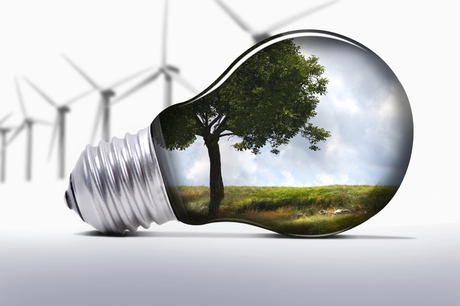Slaying the green IT monster - gamification as the future of energy conservation

With electricity prices reportedly set to rise faster than inflation in the long term, organisations are looking for new ways to encourage employees to cut down their electricity usage. Gamification - the application of game mechanics like levels and experience points to non-game contexts - may provide an answer to reducing end-user power consumption.
A few years ago, gamification was only really a force in the marketing world. Consumer superfans could prove their devotion to a particular brand by completing games on social media sites, earning virtual rewards while also advertising the product to their friends. But now it’s gaining traction in education, the fitness industry and the business world.
A typical gamification example has users undertaking specific tasks or games to earn experience points, levels, badges and forms of virtual currency. Some will provide rewards to more accomplished users, including virtual gifts, exclusive content or real-world discounts in retail stores.
Advancement through the game is often tracked with a progress bar, and some games allow users to compare their efforts to those of others via leader boards, adding a competitive element.
While it may seem like a fad to some, or even overly dorky, there is at least some limited research that suggests it’s effective, at least in marketing contexts.
A 2011 paper from Kyle Findlay and Kirsty Alberts, of market research firm TNS, found that gamification increased user participation and community interaction in one experiment. They also examined a bunch of similar metrics in a variety of other examples (see slides 24 - 35 of their presentation at ESOMAR Congress 2011).
Of course, whether this applies to the world of green IT, or even outside marketing at all, is currently up for debate.
The green issue
Gartner reports that several Type A utility organisations in the US are piloting gamification-style energy conservation contests, in the hope of encouraging behavioural change in customers. Several vendors - including energy industry SaaS providers Opower and Simple Energy - offer power-conservation game applications that can be rebranded by utility companies.
Early results appear “promising”, Gartner said, though the firm notes that these contests have largely focused on short-term savings so far - one 2011 contest, which awarded a Chevy Volt to the winner for cutting energy consumption by 36%, only went for two months.
There is also the issue of whether this behavioural change lasts after the competition has finished.
“Energy-efficiency persistence beyond the game time frame remains largely unknown at present,” the firm said.
As such, the firm suggests those setting up these games in the utility industry focus on more quantifiable and persistent measures.
“We see the marketing and promotion of traditional energy-efficiency and demand response programs as larger, strategic gamification opportunities for the utility industry than the current short-term, conservation contest formats that are currently being piloted,” Gartner said.
While the Gartner report was focused on how IT leaders within utility organisations could use these gamification systems to change consumer behaviour, the fact that these utility companies are trialling these games, combined with the increasing prevalence of gamification within the enterprise, means that we might one day see green IT gamification in the workplace.
In the same way that sales teams traditionally have targets to hit and commissions to earn for doing so, your employees may soon be banding together on quests (incentive programs) to slay terrifying green monsters (energy bills) for phat loot (personal cash bonuses).
AI at scale demands a new approach to data resilience and privacy
Data Privacy Week is a timely reminder that taking control of your data is a strategic...
Australia's path to AI sovereignty lies in strategic control, not reinvention
Many argue that Australia's priority should be building sovereign AI infrastructure and...
Can Australian businesses afford to waste $557 million?
The real barrier to AI isn't tech hype, it's the old systems we refuse to fix.



